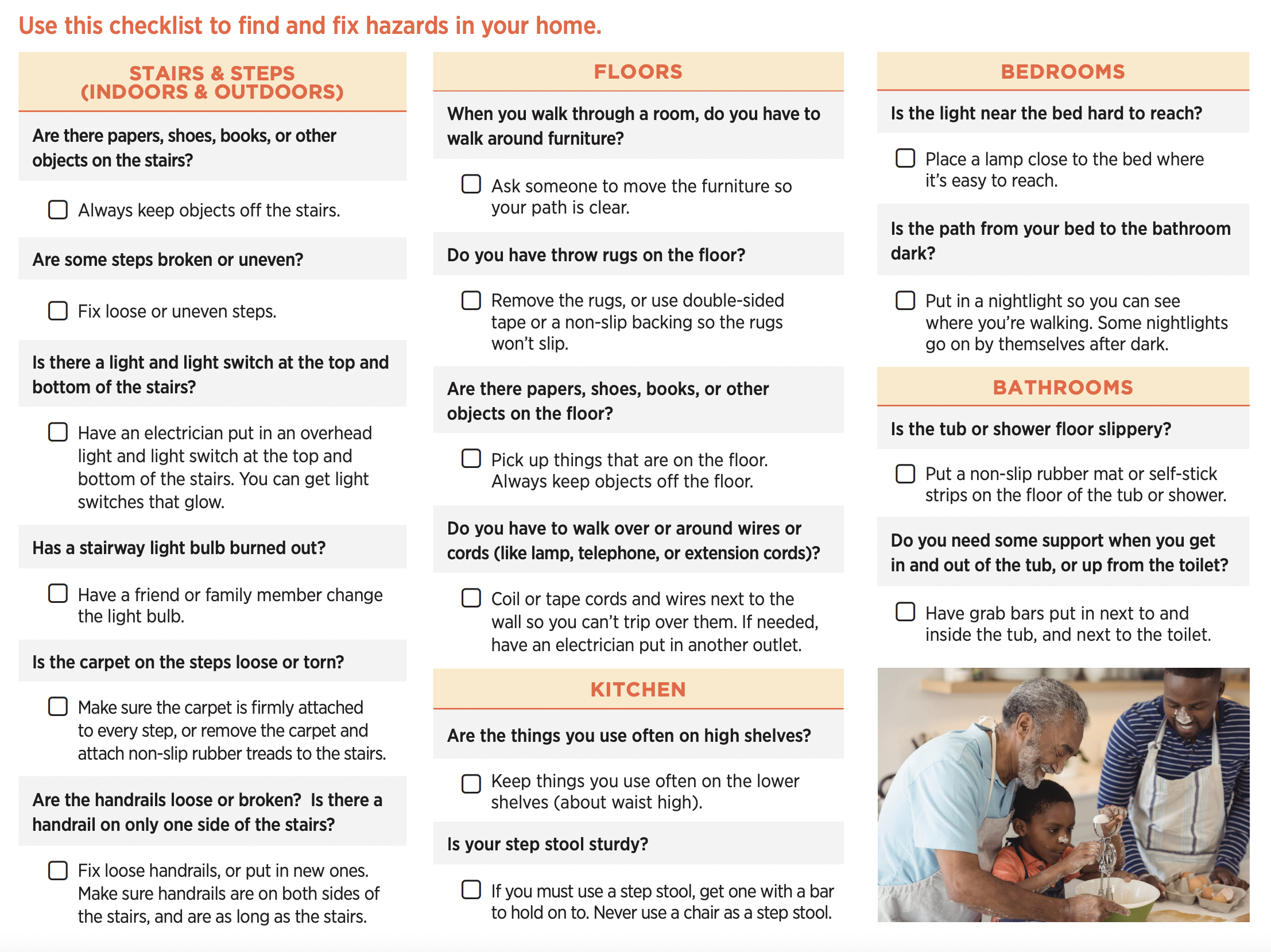A Biased View of Dementia Fall Risk
A Biased View of Dementia Fall Risk
Blog Article
Dementia Fall Risk Things To Know Before You Buy
Table of ContentsEverything about Dementia Fall Risk7 Easy Facts About Dementia Fall Risk DescribedFacts About Dementia Fall Risk UncoveredGetting The Dementia Fall Risk To WorkThe 10-Minute Rule for Dementia Fall Risk
Ensure that there is a marked location in your medical charting system where staff can document/reference scores and document appropriate notes associated to drop avoidance. The Johns Hopkins Autumn Risk Assessment Device is one of several devices your personnel can utilize to help prevent negative medical events.Individual drops in healthcare facilities prevail and devastating unfavorable occasions that linger in spite of years of initiative to reduce them. Improving interaction across the assessing registered nurse, care group, patient, and individual's most included loved ones might enhance loss avoidance efforts. A team at Brigham and Women's Medical facility in Boston, Massachusetts, looked for to create a standardized fall avoidance program that centered around boosted communication and client and family involvement.

The advancement team highlighted that successful execution relies on individual and personnel buy-in, integration of the program into existing operations, and integrity to program procedures. The team noted that they are facing just how to make sure continuity in program execution during durations of dilemma. During the COVID-19 pandemic, for instance, a boost in inpatient drops was connected with restrictions in patient involvement in addition to restrictions on visitation.
Excitement About Dementia Fall Risk
These cases are commonly considered avoidable. To apply the treatment, companies require the following: Access to Loss pointers sources Autumn TIPS training and re-training for nursing and non-nursing personnel, consisting of brand-new registered nurses Nursing operations that enable client and household interaction to conduct the drops assessment, guarantee use the avoidance plan, and carry out patient-level audits.
The outcomes can be very harmful, usually increasing person decline and creating longer medical facility keeps. One study estimated stays enhanced an additional 12 in-patient days after a person fall. The Loss TIPS Program is based on interesting clients and their family/loved ones across 3 main procedures: assessment, customized preventative treatments, and bookkeeping to guarantee that individuals are participated in the three-step autumn avoidance procedure.
The individual evaluation is based on the Morse Fall Scale, which is a verified fall risk evaluation device for in-patient health center setups. The scale includes the 6 most usual reasons people in health centers drop: the person loss background, high-risk problems (including polypharmacy), usage of IVs and various other external gadgets, mental condition, gait, and wheelchair.
Each risk aspect relate to several workable evidence-based treatments. The registered nurse produces a plan that incorporates the interventions and shows up to the treatment group, patient, and household on a laminated poster or printed aesthetic help. Registered nurses like this establish the strategy while consulting with the person and the client's household.
Dementia Fall Risk Fundamentals Explained
The poster offers as a communication device with various other members of the person's care group. Dementia Fall Risk. The audit element of the program consists of examining the client's knowledge of their risk aspects and prevention strategy at the system and healthcare facility degrees. Nurse champions perform at the very least 5 individual meetings a month with clients and their family members to look for understanding of the fall prevention strategy

A projected 30% of these falls informative post result in injuries, which can range in severity. Unlike various other unfavorable events that need a standardized professional feedback, loss avoidance depends extremely on the needs of the individual. Including the input of individuals who know the individual ideal enables greater customization. This technique has verified to be more effective than loss avoidance programs that are based primarily on the production of a threat rating and/or are not customizable.
Dementia Fall Risk - The Facts

Based upon auditing results, one site had 86% compliance and 2 sites had over 95% conformity. A cost-benefit analysis of the Fall pointers program in 8 medical facilities estimated that the click for source program price $0.88 per person to apply and led to savings of $8,500 per 1000 patient-days in straight costs connected to the prevention of 567 tips over three years and eight months.
According to the technology team, companies thinking about applying the program ought to perform a preparedness analysis and drops avoidance gaps evaluation. 8 In addition, organizations must ensure the required infrastructure and operations for implementation and establish an implementation plan. If one exists, the organization's Autumn Avoidance Task Force need to be associated with preparation.
What Does Dementia Fall Risk Mean?
To begin, companies should ensure conclusion of training components by registered nurses and nursing assistants - Dementia Fall Risk. Medical facility personnel must evaluate, based on the needs of a healthcare facility, whether to make use of a digital wellness document hard copy or paper variation of the loss avoidance strategy. Implementing teams should recruit and educate registered nurse champs and develop procedures for auditing and coverage on loss data
Team require to be entailed in the procedure of revamping the process to involve individuals and household in the evaluation and prevention plan procedure. Equipment needs to remain in area to ensure that devices can understand why a fall took place and remediate the reason. Extra particularly, nurses should have networks to give continuous responses to both team and device leadership so they can adjust and boost autumn prevention workflows and interact systemic problems.
Report this page